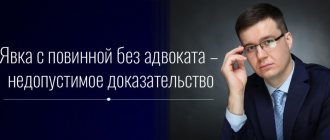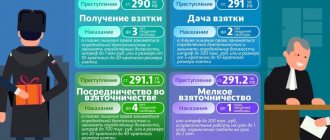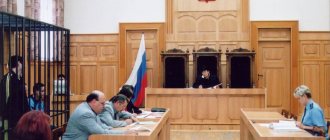In judicial practice, it is important to be able to distinguish truth from lies. In this area, the most common lie is to obtain benefits, for example, to avoid punishment. Since 2001, Russia began to accept the results of polygraph testing of participants in legal proceedings. In world practice, these studies have been used by various intelligence agencies and law enforcement agencies to obtain evidence of guilt for more than 80 years. To answer the question: “Is a lie detector evidence for the court?”, it is worth considering its use in judicial practice in more detail.
Lying is a simple matter and accessible to everyone, and yet I have never seen a liar who could successfully lie three times in a row. Jonathan Swift
Method for obtaining information by a polygraph examiner
Polygraph tests are a very powerful argument for many people, since the possibility of deceiving them is very small.
This device only reads information about the subject's reaction to a question, for example, increased heart rate or trembling in the fingers. The change in physiological response is read by the sensors of the device. The data obtained as a result of testing is processed by a polygraph examiner - only he is able to distinguish a reaction caused by a lie from natural excitement due to fear of examination or accusation. Therefore, when using a polygraph in court as evidence, it is important that the study is carried out by a qualified specialist.
Principles of legal proceedings
The dominant position, determining the nature and primary norms in court, is occupied by the principles prescribed in the articles of the Constitution of the Russian Federation and fixing the requirements for legal proceedings.
According to the law, the duty of the state is to protect and protect the interests and rights of both organizations and legal entities that have suffered from acts of a criminal nature or illegal and unfounded accusations, convictions and restrictions.
Legal proceedings must comply with:
- Legality of investigation and justice actions.
- Respect for the honor and dignity of a person.
- Inviolability of interests and private property.
- Organization for the protection of individual freedoms and rights.
- Maintaining the secrecy of correspondence, messages and negotiations.
- The presumption of human innocence.
- Rights to protection.
- Competitiveness of the parties involved.
- Freedom to obtain evidence.
- Freedom to choose the language of legal proceedings.
- The right to appeal procedural actions and decisions.
They receive constitutional and legal development and change along with the level of economic and social change in society.
The work of the polygraph in criminal proceedings corresponds to the stated principles of legal proceedings, is carried out according to a proven scheme and does not harm the health of the subject.
The document for the lawful use of the device was the Resolution adopted on May 17, 1996, which carried out a program to strengthen work with the eradication of crime from 1996 to 1997. It talks about the need to use a PFE device. Clause 2.1.6 stipulates the financial side for the development of a methodological basis and corresponding apparatus. To date, the instructions dated December 28, 1994 have been communicated.
The use of a technical device is specified by departmental regulations and instructions with designated access codes. The results are documented and taken into account when proving guilt.
On a special form, the person being interviewed signs an explanation of the points presented:
- the examination takes into account the consent of the citizen and his participation is confirmed by his personal signature;
- mandatory familiarization with the essence of the interrogative sentences being asked is required;
- a person has the right to change his mind about participating or postpone it to another time acceptable to him;
- the results are used exclusively within the organization interested in the experiment.
During the interview, the testing person uses only scientifically proven research. There are a number of cases where the courts of first instance accept evidence of this type of interrogation.
Is there always an opportunity for a polygraph test in court?
The polygraph is widely used to test people in a variety of settings, but it can be most useful during litigation. There are different types of courts:
- criminal; arbitration; civilian.
Most often, polygraph studies serve as evidence in criminal and administrative cases. When considering a case in court, both parties involved in the process may file a motion to order psychophysiological testing. Most often, this measure is used if only in this way, and in no other way, can one of the parties prove that they are right.
It is worth noting that the court does not always order a lie detector test. Why this happens, consider the options:
- When considering criminal cases, if the defense in order to prove innocence, most often the judge refuses to conduct it or the data obtained during the study have little influence on the final decision. A polygraph in court becomes a more powerful argument representatives of the prosecution file a petition for testing .
Is this information considered evidence in court?
An expert polygraph examiner draws conclusions and writes a conclusion based on the information available in the memory of the suspect. Analysis of materials, diagrams, videos and tables obtained during PFE work generates a conclusion with a percentage of indisputability of 0.98% and higher.
In 2001, in Russian legal proceedings, the results of polygraphic analysis of participants in legal proceedings are taken into account.
A psychophysiological investigation is prescribed when required:
- eliminating conflicting information from participants in the process;
- discrepancies between testimony and evidence.
Based on the examination, the absence and presence of circumstances for the ongoing process are established. You can refuse PFE at any time. Refusal of a polygraph in a criminal trial is not punishable.
Another participant is appointed to obtain the necessary information, but this will entail doubts about the veracity of the testimony of the person who refused. Psychophysiological testing is impossible without the consent of the test participant, confirmed in writing. Forced participation in a survey at the detector is an illegal action. Refusal does not entail unpleasant consequences.
Psychophysiological analysis is prescribed both by resolution of the court and the investigator, and at the request of a lawyer.
In what cases is a polygraph used in court?
According to the legislation of the Russian Federation, in a court considering any type of case, each party can prove its case by any methods, except those prohibited by law.
Let us consider, for example, what the results of an examination conducted using a lie detector during the consideration of a criminal case provide. In relation to the accused, psychophysiological testing helps in cases where:
- There is no other direct evidence. The testimony of witnesses in court or other participants in the process contradicts what was established during the investigation. There are still unanswered questions in the case or contradictions that representatives of the prosecution or defense need to clarify in order for the court to make the right decision.
Let's consider a polygraph examination as a forensic method.
Criminologists, in the course of their professional activities in solving crimes, deal either with materially fixed traces of events (fingerprints, objects at the crime scene, etc.) or with their ideal traces (faces imprinted in memory, details of the incident). Any methods used in the investigation process must satisfy the criteria of scientificity, safety, legality, ethics and efficiency. Psychophysiological examination using a polygraph fully satisfies these criteria, which means it can be considered a valid valid method in forensic science. The purpose of the PFE is to establish factual data significant for the case under investigation, by means of diagnosing the memory of the subject, in the context of the hypothetical presence in it of specific ideal traces that are directly related to the properties and signs of actions indicating the deliberate concealment of culpable information (in case of discrepancies with the testimony) and to a certain degree of participation in the episode under investigation.
The use of a polygraph in operational investigative activities is carried out in several cases:
- When it is completely impossible to obtain the required information without bypassing a specific person (for example, when the event of interest under investigation cannot under any circumstances be confirmed/refuted/documented or by other persons)
- When obtaining information is possible without a polygraph, but involves huge material or time costs, or requires the involvement of a significant number of people.
- When you urgently need to obtain the necessary information, and no other method can provide the required speed.
When can using a polygraph in court cause harm?
Testing using a polygraph does not always help the participants in the process who applied for it.
Let's look at an example:
In the Supreme Court, after the impossibility of a successful decision in one of the regional courts, one libel case was considered (before liability under the Criminal Code was returned). Two gentlemen M. and N participated in the civil process.
M., who started this trial, pointed to many witnesses who were ready to testify in his support. They were present at the moment when the accused N. repeatedly disseminated various information about M. They greatly spoiled the applicant’s reputation and the reputation of his business as a whole.
However, M., despite the full evidence base, lost the case due to the fact that he often petitioned for a psychophysiological examination using a lie detector to be carried out on his witnesses. Most of them did not want to participate in the process for this reason, because they considered this measure unnecessary or were unpleasantly surprised that M. did not trust their words and petitioned for an additional check.
The judge was unfavorable to M. due to the fact that he had to decide on a large number of applications submitted. Despite the seemingly winning positions, M. lost the process due to excessive litigiousness.
Based on the example, we can conclude that in a court case it is worth requesting a polygraph test only in the most extreme cases, when it is really necessary. It is not worth it to unnecessarily subject a witness who is already on your side, as M. did, because most people are very worried about such testing and do not want to subject themselves to such a test. It was for this reason that M. lost all his witnesses.
Return of the “Queen of Evidence”
Often, at the stage of checking materials or during the preliminary investigation, a law enforcement officer or investigator offers a citizen, including a suspect, accused, as well as a victim or witness, to undergo a polygraph test or, scientifically speaking, a psychophysiological study (examination). This is motivated by the need to check the testimony obtained during interrogations for their reliability.
At the same time, the requirement for admission to a lawyer and refusal to take a lie detector test can be considered as deliberately guilty behavior with the explanation that in this way the person does not want to cooperate with the authorities and is hiding significant circumstances. Such actions, according to law enforcement officers, confirm the person’s involvement in the commission of a crime, in connection with which the subject can be detained with the use of severe preventive measures - up to and including detention.
After such explanations, as our experience shows, it is very difficult for a citizen without a lawyer to refuse a polygraph test, in the documents for which, naturally, there will be a record of voluntary participation in it.
Often, when giving explanations during inspections in cases of offenses in the field of economic activity, police officers from the Economic Security and Anti-Corruption Department, as well as investigators in similar cases, persistently offer to undergo a polygraph test. Practice shows that there are usually several officials in the office, each of whom convincingly recommends not to refuse the polygraph. Thus, a businessman who contacted us said that he was initially told that by refusing to take a polygraph, he did not want to cooperate with the investigation, and to convince him, they threatened to detain him for 48 hours with the subsequent initiation of a criminal case.
A natural question arises about the legality of using this research method in the process of conducting operational investigative actions, as well as evidence in a criminal case. In accordance with Part 2 of Art. 1 of the Code of Criminal Procedure of the Russian Federation, the procedure for criminal proceedings is mandatory for courts, prosecutors, preliminary investigation and inquiry, as well as other participants in legal proceedings.
In Art. 74 of the Code of Criminal Procedure of the Russian Federation lists evidence that can be used to confirm circumstances relevant to a criminal case. These include the testimony of the suspect, accused, victim, witness; conclusion and testimony of an expert and specialist; evidence; protocols of investigative and judicial actions; other documents.
Consequently, the criminal procedure law does not directly provide for the possibility of using a polygraph in criminal proceedings to verify the reliability of the testimony of the listed participants.
On this issue, the Supreme Court of the Russian Federation in the Cassation Ruling of September 11, 2012 No. 41-O12-57SP indicated that the Code of Criminal Procedure of the Russian Federation does not provide for the legislative possibility of using a polygraph in criminal proceedings. This type of examination is the result of a survey using a polygraph that records psychophysiological reactions to any question, and such a conclusion cannot be considered as adequate evidence that meets the requirements of Art. 74 Code of Criminal Procedure of the Russian Federation. Polygraph data when checking the reliability of the defendants' testimony is not evidence. The defendants were questioned directly at the trial, and the assessment of their testimony falls within the competence of the jury, and not the expert.
In accordance with clause 5.2.1 of the Review of Cassation Practice of the Judicial Collegium for Criminal Cases of the Armed Forces of the Russian Federation for the second half of 2012, approved by the Presidium of the Armed Forces of the Russian Federation on April 3, 2013, “...according to the criminal procedure law, psychophysiological studies are not evidence...”.
Thus, the Supreme Court of the Russian Federation changed the verdict of the Murmansk Regional Court of July 23, 2012 in relation to B. and Sh., eliminating the reference to the use as evidence of conclusions based on the results of psychophysiological examinations carried out during the preliminary investigation, during which the testimony of B. and Sh. was examined.
The panel of judges indicated that such conclusions do not meet the requirements of the criminal procedure law for expert opinions, and this kind of research, aimed at developing and verifying investigative leads, does not relate to evidence in accordance with Art. 74 of the Code of Criminal Procedure of the Russian Federation (Cassation ruling dated October 4, 2012 No. 34-O12-12).
According to Art. 8 of the Federal Law “On State Forensic Expert Activities in the Russian Federation”, the expert conducts research objectively, on a strictly scientific and practical basis, within the relevant specialty, comprehensively and in full. The expert's conclusion must be based on provisions that allow checking the validity and reliability of the conclusions on the basis of generally accepted scientific and practical data. This is one of the main principles of expert research. Currently, there is no database of generally accepted scientific and practical data that “allows us to verify the validity and reliability of the conclusions” of psychophysiological research using a polygraph.
The requirement that the expert's conclusions must be based "on generally accepted scientific and practical data" means that if the study is repeated using the same method, the same result as the original study must be obtained. In practice, however, it has been confirmed that when conducting a repeated study, the proportion of results that are directly opposite to the initial ones is very large - up to 50%, which, in our opinion, indicates the unreliability of this method.
In science there is also no single position on the issue of using a polygraph: a number of scientists talk about the reaction in connection with the false testimony of the subject, others argue about the significance of the questions and the experiences of the subject for this reason.
But only the court can assess the reliability of the testimony of the defendant or another participant in the proceedings based on a study and assessment of all the evidence presented. A polygraph study submitted to the court already contains certain conclusions, which is an intrusion into the competence of the court, investigator and interrogator, and if the results of such a study are accepted as evidence, this will mean establishing the truth in the case without conducting investigative actions.
In Art. 87 of the Code of Criminal Procedure of the Russian Federation states that the verification of evidence is carried out by the investigator, prosecutor and court by comparing it with other evidence available in the criminal case. In accordance with Art. 88 of the Code of Criminal Procedure of the Russian Federation, the assessment of evidence from the point of view of reliability, relevance and admissibility is also entrusted by law to the investigator, prosecutor and court.
Thus, a specialist’s conclusion on the results of a psychophysiological study using a polygraph cannot be used as admissible evidence, which is directly provided for in clause 3 of part 2 of art. 75 of the Code of Criminal Procedure of the Russian Federation (category “other evidence”).
At the same time, the objectivity of the result of a psychophysiological study using a polygraph depends on many factors and conditions, in particular the physiological state of a person, mental perception of the procedure, etc. Conclusions, we believe, may be incomplete, inaccurate, and may contain erroneous data. The reasons may be different, including depending not only on the qualifications of the specialist and the methodology chosen by him, but also on the physical and mental state of the subject, the degree of his excitement during testing, as well as the medications and other drugs, substances he takes, etc.
Thus, one of the clients who contacted us did not see the opportunity to prove his case in any other way than a lie detector test. At the time of the crime he was in another place, but for some reason he could not name witnesses to his alibi. The results of the polygraph were not in his favor and rather confirmed the version of the investigation.
The sad history of judicial repressions of past centuries remembers the formula: “Confession is the queen of evidence” (From Latin: Regina probationum). In recent history, a modernized “queen of evidence” may appear - using psychophysiological research or examination.
The first steps in this direction have already been taken. Thus, in 2021, the heads of expert departments of law enforcement agencies (Institute of Forensic Science of the Center for Special Equipment of the FSB, Expert Forensic Center of the Ministry of Internal Affairs, State Department of Forensic Science of the Investigative Committee of the Russian Federation, 111th Main State Center for Forensic and Criminalistic Expertise of the Ministry of Defense of the Russian Federation) approved the Interdepartmental Methodology of Production forensic psychophysiological examinations using a polygraph, developed by decision of the Federal Interdepartmental Coordination and Methodological Council for Forensic Examination and Expert Research by an interdepartmental working group. In addition, last year, Methodological Recommendations were adopted on the procedure for prescribing and conducting psychophysiological examinations and studies using a polygraph in the system of the Ministry of Internal Affairs of Russia.
The draft amendments to the federal laws “On State Forensic Activities in the Russian Federation” and “On the Investigative Committee of the Russian Federation (Bill No. 663034-7) propose to include psychophysiological examination in the list of forensic examinations in criminal cases.
In our practice, we recommend that when asked to take a polygraph, clients do not tempt fate, but take advantage of Art. 51 of the Constitution of the Russian Federation, according to which a citizen has the right not to testify against himself, his spouse and close relatives, because the psychophysiological study itself involves a survey (testing) - that is, answers to the questions posed.
This current norm of the Constitution of the Russian Federation was adopted in accordance with the International Covenant on Civil and Political Rights, Art. 14 of which, as a guarantee during the investigation and filing of charges, establishes the inadmissibility of coercion to testify against oneself or to admit guilt.
The European Court of Human Rights, in interpreting the right not to incriminate oneself, proceeds from the fact that these provisions are generally recognized international norms that underlie the concept of a fair trial established by Art. 6 of the Convention for the Protection of Human Rights and Fundamental Freedoms.
Thus, the European Convention also guarantees that defendants are protected from being forced by law enforcement officials to take a lie detector test. In addition, the norm of paragraph 2 of Art. 6 of the Convention recognizes inadmissible evidence obtained against the will of the accused, through coercion or pressure, linking this rule with the presumption of innocence.
The right not to incriminate oneself applies not only to the circumstances of the accused act, but also to any other information about facts, events and circumstances that can subsequently be used against the accused person. This appears to be a legitimate way to avoid a polygraph and prevent the establishment of a new breed of “queen of evidence.”
Polygraph as a method for diagnosing a person’s psycho-emotional state
A polygraph or, as it is also called, a “lie detector” allows you to evaluate a person’s emotional outbursts at the moment of answering questions.
He can answer only in monosyllables - “yes” or “no”. Before conducting a polygraph test, the specialist gets acquainted with the materials of the criminal case and draws up a list of questions based on them.
The polygraph examiner uses these questions to achieve three goals:
- Find out whether a person could have committed actions related to this crime.
- Is he aware of them?
- What motives did the person have for performing these actions?
Based on the results of the polygraph examination, the specialist draws up a conclusion in which he expresses an opinion about the person’s involvement in the crime. The judge cannot use this document as direct evidence in the case, but can rely on it when making a decision.
Not only the accused, but also witnesses and victims can undergo a polygraph test. However, according to Russian laws, this procedure is voluntary and no one has the right to force the participants in the case to undergo it. They give their written consent to this.
RESOLUTION ON THE PURPOSE OF SPFE
In addition to general data (the place and time of the decision, by whom it was made and in what case), the decision on the appointment of the SPFE briefly outlines the circumstances of the case, provides the rationale for the appointment of the examination, indicates the objects provided to the expert, and, finally, formulates the questions that are raised for resolution expert. SPFE can be carried out only with the consent of the subject expert, which must be obtained by the investigator, documented in the appropriate document, and this must be indicated in the decision on the appointment of the examination.
The issues specified in the resolution on the appointment of SPfE must be formulated in a clear, unambiguous and generally understandable form. The list of these questions is mandatory for the expert: he is obliged to resolve them or justify the impossibility of resolving them.
Therefore, the first thing that both the investigator and the expert must pay attention to is the correct (from procedural and methodological points of view) formulation of the issues to be resolved during the SPFE.
The authors of this article have repeatedly drawn the attention of specialists to the fact that one of the defects of incompetent SPFE production is the incorrect formulation by the investigator of questions submitted for research, which the expert subsequently accepts for execution. In particular, an example of such an incorrect formulation of the question (which, unfortunately, has become widespread in practice) is the following formulation: “Are reactions revealed during a psychophysiological study using a polygraph that indicate that the citizen (full name) has information about the details of what happened?” 2.
However, reactions are “signs on the basis of which the main task of the SPFE is solved: what information is contained in the memory and consciousness of the subject (at the current moment in time) ..., and reactions cannot be assessed by the investigator (court), since this requires appropriate special knowledge » 3. Therefore, asking an expert about “identifying reactions” makes no sense, and mention of reactions cannot appear in the conclusions.
If the question in the resolution on the appointment of SPFE is formulated in violation of procedural or methodological rules, but its meaning is clear, the expert has the right to reformulate it (but with the obligatory presentation of the original wording), indicating that “in accordance with his special knowledge, the expert understands the question posed as follows: ... "
If the meaning of the question is not clear, the expert must contact the investigator with a request to reformulate it, and this leads to an unproductive loss of working time, the shortage of which both the expert and the investigator constantly experience.
How should the questions submitted for resolution during the SPfE be formulated?
It is recommended to formulate such questions as follows: “Does expert A. have information in his memory that he ... (for example, stabbed Mr. B.).”
The quality of issues submitted for resolution during the SPFE is important not only for the investigator, but also for the expert: the latter does not have the right to resolve issues that go beyond the scope of his specialty and do not require special knowledge (including issues of a legal nature). If the listed questions are posed to the expert, he must refuse to resolve them, giving reasons for this in his conclusion.
The expert must remember that by accepting an incorrectly formulated question for execution, he actually “signed” for professional incompetence and made the conclusions of the SPFE procedurally flawed, without even starting the examination itself.
The last remark obliges the investigator to pay attention to who he entrusts with carrying out the examination. It is unacceptable to entrust the examination to polygraph examiners working in the context of operational investigative activities or in the interests of personnel selection: SPFE can only be carried out by a specialist who has undergone special training in this field and has received the appropriate certification.
Polygraph as evidence in criminal proceedings
The criminal process includes a set of actions to investigate what happened. These actions require an individual approach. At the same time, the status of the victim, accused and witnesses requires them to provide truthful information about the case. They are warned about the liability for giving false testimony in court.
According to Article 74 of the Code of Criminal Procedure of the Russian Federation, the following are considered evidence:
- Explanations about what happened, given by the accused or the victim.
- Witness's testimonies.
- Expert opinion and testimony. Along with the conclusion, physical evidence found at the crime scene may be presented.
A polygraph test procedure is also used as an indirect method for establishing the circumstances of a case. It is resorted to when the testimony of the participants in the case differs significantly and it is impossible to establish the truth. However, many legal scholars have doubts about the reliability of this research method. Therefore, it cannot be considered evidence in a criminal case, because the judge does not receive the results of the polygraph test itself, but only an expert opinion after evaluating them.
How is polygraph data used?
The use of polygraph data is due to the fact that an innocent person answers questions in a criminal case calmly. He doesn't worry or panic. Consequently, the polygraph does not show emotional outbursts in the attitude of the subject to the questions.
This leads to the opinion about the effectiveness of the polygraph as evidence in criminal cases. However, it must be taken into account that some people may be influenced by the very fact of undergoing such a procedure. They begin to worry regardless of the questions and the research results turn out to be biased.
The second reason for doubting the effectiveness of the polygraph as evidence in a criminal case lies in the possible contradictions between its results and the evidence collected by investigators and interrogators.
In addition, it should be taken into account that the concept of evidence in legal science has clear characteristics, some of which are absent in printing research.
ORGANIZATION OF SPFE PRODUCTION
The specificity of SPFE, unlike many other types of examinations, is that when organizing its production, the expert and the investigator are required to actively interact on a number of issues in order to create, if possible, optimal conditions for the work of the expert with the subject. The latter includes a pre-test conversation, polygraph testing (hereinafter referred to as TnP) and a post-test conversation.
Thus, when preparing for the SPFE, the expert together with the investigator: a) choose the place where the expert will work with the subject and the optimal time for work; b) determine the persons present when the expert works with the sub-expert (hereinafter referred to as the REP); c) if necessary, decide to involve a translator in the electronic rapport; d) determine the procedure for ensuring video recording of REP; e) in the case of SPFE of the accused or convicted person, the procedure for ensuring security during the REB is determined.
For TD, a room is chosen that provides comfortable conditions (in terms of lighting, temperature, ventilation and noise protection) for the subject, expert and other persons who may be present during the RP to stay there for several hours. Such persons may be an investigator, a lawyer, a translator, or a law enforcement officer who ensures security during the REP.
In the case of a large number of issues submitted for expert research, a large technical training program and, as a consequence, the impossibility of completing the REP on one day, the expert, together with the investigator, determines the possible scope of the first stage research, performed on the first day, as well as the conditions and procedure for completing the research in subsequent days. In this case, the time interval between the first and next stage (or stages) can range from one or several days to several weeks.
After solving the issues listed above, the expert prepares the selected room for conducting the REP, taking into account the fact that those present and the computer polygraph must be out of sight of the expert.








